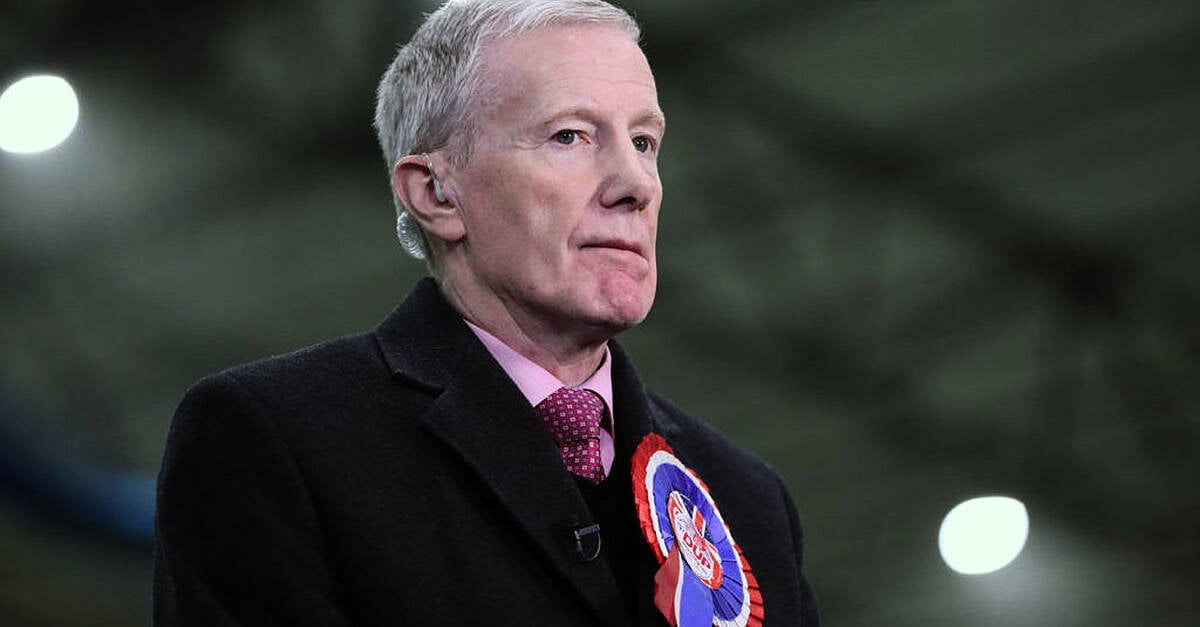Ceasefire in Lebanon Prompts Debate on Celebrating Peace
A recently announced ceasefire between Israel and Hezbollah in Lebanon, while welcomed by many, has sparked a nuanced debate about the nature of peace celebrations. The 60-day truce, agreed upon Tuesday night, mandates a halt to hostilities and a withdrawal of both sides from southern Lebanon. However, reports of Hezbollah claiming victory have drawn scrutiny, with some comparing it to past pronouncements from IRA supporters in Belfast.
During a session of business questions in the UK House of Commons on Thursday, Gregory Campbell, MP for East Derry, voiced concerns about framing peace as a victory for one side.
“Will the Leader look at a general debate in Government time on attitudes to ceasefires following the welcomed ceasefire in the Middle East – but Hezbollah supporters there trying to claim a victory yesterday, reminiscent of IRA supporters in West Belfast doing likewise – in order to ensure the general public know peace is welcome but not people trying to turn peace into a victory parade?” Campbell inquired.
Campbell’s comments highlight a delicate issue – how to celebrate peace without alienating those on the other side of a conflict. While a ceasefire is a crucial step towards lasting peace, it often necessitates compromise and concessions from both parties involved.
Responding to Campbell’s question, Commons Leader Lucy Powell emphasized the overarching goal of achieving a peaceful resolution.
“I think we can all welcome the ceasefire in Lebanon and hope that efforts for a ceasefire in Gaza are successful quickly too because at the end of the day what we all want is a peaceful solution in this area,” Powell stated.
Powell further stressed the need for sustained dialogue and diplomacy to build a lasting peace.
“We do need a political solution to a two-state solution as well. So a ceasefire is only (the) beginning of a process and it’s really important that trust is maintained and that we can work towards that long-term sustainable peace,” she added.
The Israel-Hezbollah ceasefire underscores the complexities of conflict resolution. While a halt to fighting is a monumental achievement, genuine peace requires navigating intricate political landscapes and fostering reconciliation between former adversaries.
What are the potential dangers of celebrating a ceasefire as a victory for one side?
## Celebrating Peace? A Ceasefire Sparks Debate
**[Host]**: Welcome back to the show. Today we’re discussing a recent ceasefire in Lebanon between Israel and Hezbollah. While many are celebrating the end of hostilities, the nature of those celebrations has sparked debate. Joining us to discuss is Dr. Emily Carter, a Middle East expert from the Institute of International Relations. Dr. Carter, thank you for joining us.
**[Dr. Carter]**: Thank you for having me.
**[Host]**: So, the ceasefire was announced Tuesday, and we’ve seen images of people celebrating. But we’ve also heard reports of Hezbollah claiming victory. How should we understand this complex picture?
**[Dr. Carter]**: I think it’s crucial to acknowledge the relief felt by many after weeks of violence. A ceasefire is always a positive step, and the hope is that it will pave the way for a lasting peace. However, Hezbollah’s pronouncements of victory complicate matters. It feeds into a narrative of them being the victors, which could undermine the delicate balance achieved by the truce.
**[Host]**: You mentioned parallels drawn between Hezbollah’s claims and past pronouncements by IRA supporters in Belfast. Could you elaborate on that?
**[Dr. Carter]**: Certainly. Both situations highlight how narratives of victory, even within ceasefires, can hinder true reconciliation. Just as in Northern Ireland, claiming victory can create a sense of triumphalism, making it harder for the other side to accept the terms of the peace and rebuild trust.
**[Host]**: Dr. Carter, looking ahead, what needs to happen for this ceasefire to truly lead to lasting peace?
**[Dr. Carter]**: Beyond the immediate cessation of hostilities, we need to see a commitment to engaging in meaningful dialog and addressing the root causes of the conflict. This includes dealing with issues like security concerns, territorial disputes, and socio-economic inequalities. Without addressing these underlying issues, any ceasefire will be fragile at best.
**[Host]** Thank you for your insights, Dr. Carter.
It’s clear that while the ceasefire is a welcome development, the path to lasting peace in Lebanon is still long and complex. [[1](https://www.youtube.com/watch?v=JcG9Mj2SI-s)]


